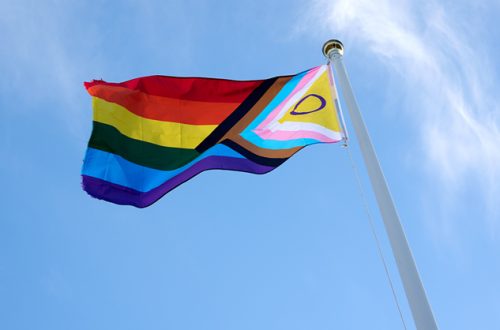On September 30, we commemorate the first National Day for Truth and Reconciliation. This day is intended to honour the victims and survivors of the Indian Residential School System in Canada, their families, and communities. It is a time for all Canadians to acknowledge and learn the history of what Indigenous Peoples have endured and continue to endure in Canada. It is also an opportunity to unlearn colonial narratives that have shaped much of what is known and taught about Indigenous communities.
For many years, incorrect narratives regarding residential schools described them as a system intended to educate Indigenous children and help prepare them for a life in non-Indigenous society. The Truth and Reconciliation Commission of Canada (TRC) focused on truth determination. It uncovered and documented the reality and intent of residential schools as a government policy tool used to commit cultural genocide. The TRC defines cultural genocide as “the destruction of those structures and practices that allow the group to continue as a group.” This included the inability of families to pass on culture, language, and values from one generation to another. The 6-volume final report provides a vivid account of the horrors that Indigenous children faced and the ongoing trauma that continues to impact Indigenous communities because of this system.
While the TRC’s report was published in December 2015, the journey towards Truth and Reconciliation is ongoing and many challenges continue to impact its success. The uncovering of unmarked children’s graves at various former school sites across the country, a tally that continues to grow, has now shed renewed light on the importance of working towards the 94 calls to action brought forward by the TRC.
As an organization that is deeply committed to diversity and inclusion, the Ontario Society of Professional Engineers (OSPE) is looking to do its part in advancing truth and reconciliation within the engineering profession. We are taking time today as a team to learn, reflect, and discuss how we can continue to advance this important objective. We encourage all of our members to also ask themselves some key questions:
- How knowledgeable am I regarding the history of Indigenous Peoples in Canada?
- Do I understand the purpose of Truth and Reconciliation?
- Do I recognize how Indigenous People continue to face the impact of colonialism, genocide, and systemic discrimination?
- What can I do as an individual to contribute to Truth and Reconciliation?
Some actions you can take include:
- Read books by Indigenous authors
- Connect with Indigenous serving organizations in your community
- Review the 94 Truth and Reconciliation calls to action and commit to at least 1
- Watch online events hosted by Indigenous organizations
It is also important to recognize that strong relationships with Indigenous Communities are essential for Canada’s engineering sector. As employees or employers, we ask that you look at how engineering organizations can take action to advance call to action number 92.
92. We call upon the corporate sector in Canada to adopt the United Nations Declaration on the Rights of Indigenous Peoples as a reconciliation framework and to apply its principles, norms, and standards to corporate policy and core operational activities involving Indigenous peoples and their lands and resources.
This would include, but not be limited to, the following:
- Commit to meaningful consultation, building respectful relationships, and obtaining the free, prior, and informed consent of Indigenous peoples before proceeding with economic development projects.
- Ensure that Aboriginal peoples have equitable access to jobs, training, and education opportunities in the corporate sector, and that Aboriginal communities gain long-term sustainable benefits from economic development projects.
- Provide education for management and staff on the history of Aboriginal peoples, including the history and legacy of residential schools, the United Nations Declaration on the Rights of Indigenous Peoples, Treaties and Aboriginal rights, Indigenous law, and Aboriginal-Crown relations. This will require skills-based training in intercultural competency, conflict resolution, human rights, and anti-racism.”
There are various Indigenous-led organizations that provide resources and tools to advance these three objectives. We have compiled some suggestions for you below, but encourage you to engage with local Indigenous organizations.
- https://indigenousworks.ca/en/products
- https://www.ccab.com/
- https://www.bearstandingtall.com/
- https://makhosinc.com/
- https://trishmeekins.com/
- https://www.sistercircleconsulting.ca/
Diverse perspectives and voices will strengthen our communities, workplaces, and professions. We look forward to continuing to learn, engage with Indigenous communities, and work towards a more diverse and inclusive profession and society.





Comment (1)
On the National Day for Truth and Reconciliation, we honour the lost children and Survivors of Residential Schools, their families and communities. We recognize that without acknowledging the truth, there can not be reconciliation. OSPE staff have taken a course through the Indigenous Relations Academy to learn about the tragic and painful history and ongoing impacts of residential schools, so that we can better understand our role in the reconciliation process.
This morning, OSPE Staff have me to share what we’ve learned and to discuss what our role is in the reconciliation process as individuals and as an organization. “
As the voice of the engineering community, we encourage all professional engineers to take some time to reflect on how their work impacts local Indigenous communities and the land they are bound to share and protect. This includes building respectful relationships, meaningful community consultation, obtaining free and informed consent before proceeding on projects, and ensuring Indigenous peoples have equitable access to engineering employment and professional development opportunities.
We also understand that this work is not focused on one day, and we remain committed to work towards full reconciliation in the years ahead of us.
Leave a Comment